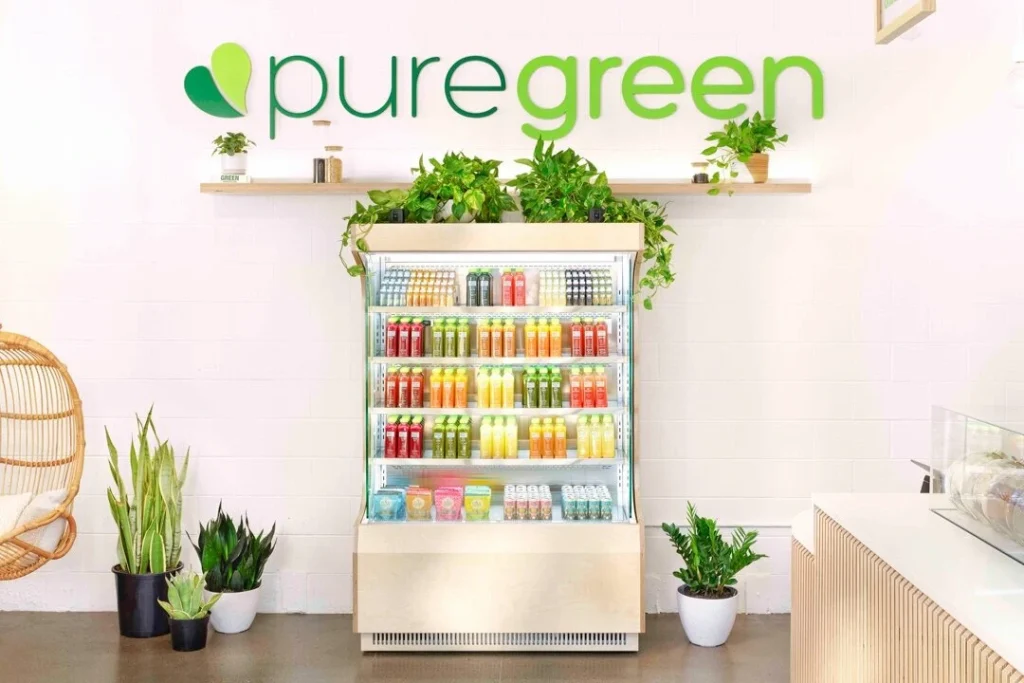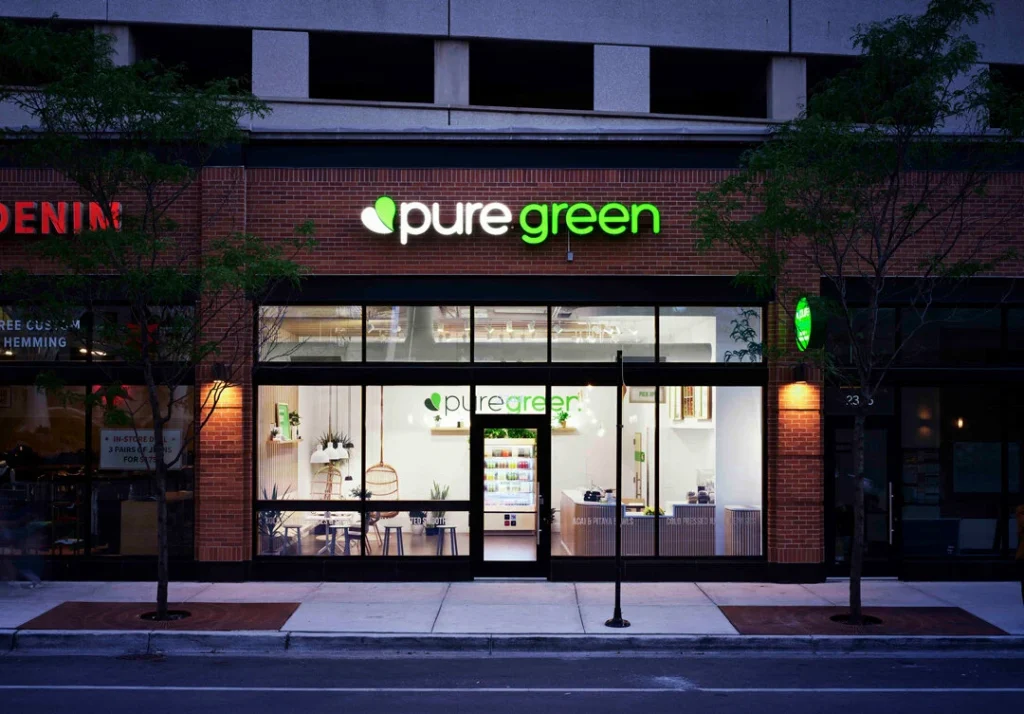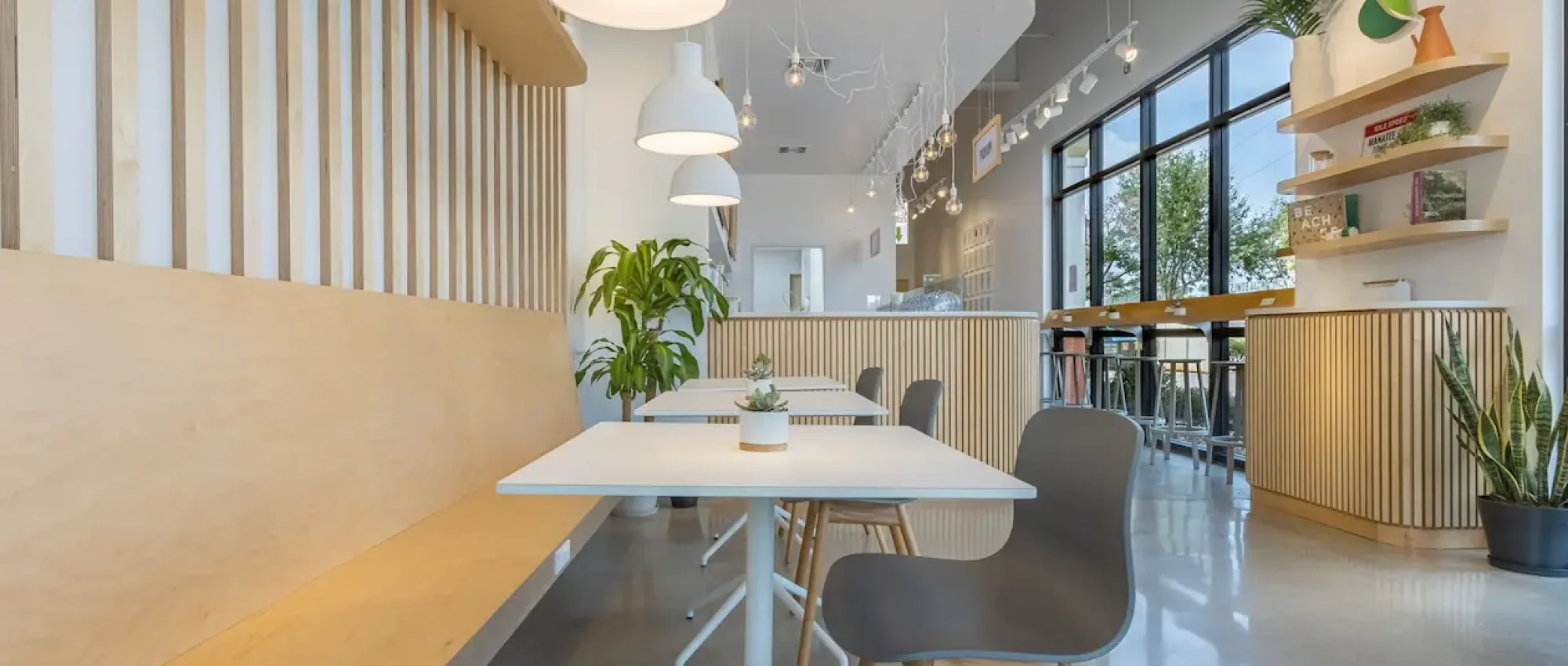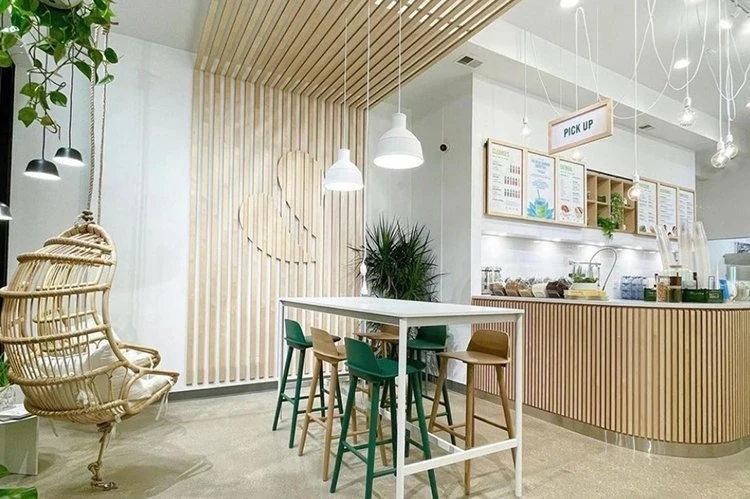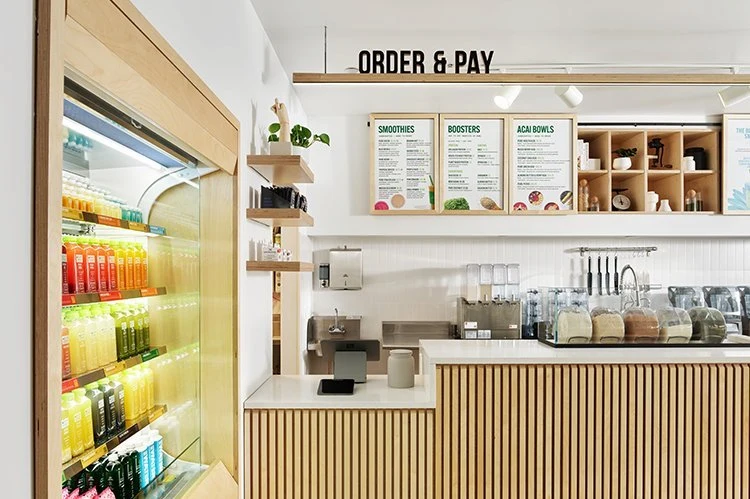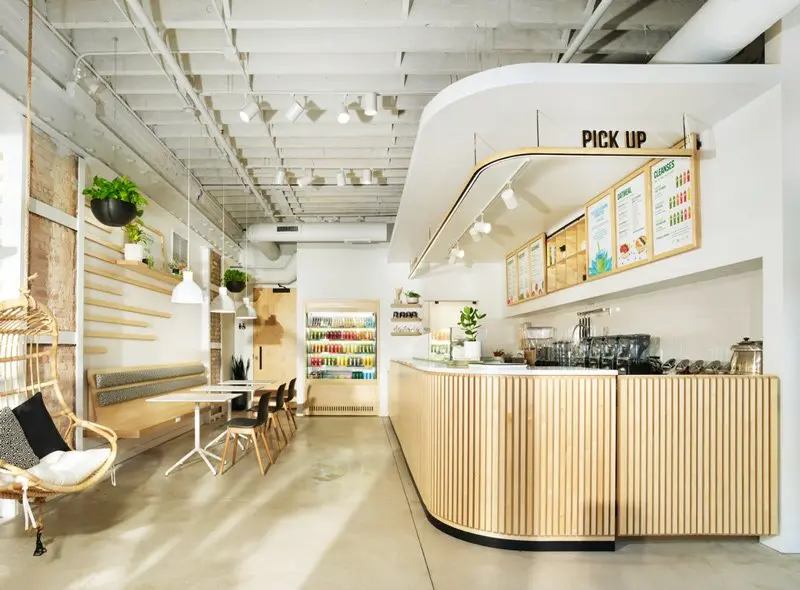Key Takeways
- The franchise system is an extremely appealing business model that provides a wide range of benefits to both the franchisor and the franchisee alike. Currently, there are nearly 800,000 franchise locations in the United States alone.
- The juice bar industry is growing at a faster pace than both the general economy and the US population.
- Juice bar franchise owners will have an immediate advantage over anyone trying to start a juice bar (or comparable business from scratch
- Whether opening a juice bar franchise is “right” for you will depend on a variety of different factors, including your personal financial well-being, your goals as a business owner, your operational preferences, and more.
Exploring the Pros and Cons of Franchise Business
There are a lot of different ways to create a successful business. And there are a lot of different business models you can use to potentially “get there.” Taking the time to explore your options will undoubtedly be very beneficial. But eventually, you’ll need to choose an industry and a business model that can take you from where you are right now to where you hope to be in the future.
One of the perhaps most surprisingly profitable business models is the creation of a juice bar franchise. With the right business plan in place, a juice bar franchise can potentially generate more than half a million dollars in revenue after a single year of operation.
Still, even keeping this in mind, there are a lot of things to consider before creating a juice franchise of your own. Let’s take a closer look at the pros and cons of creating a juice bar franchise, allowing you to determine whether opening this sort of establishment will be in your own best interest.
WHAT IS A FRANCHISE?
Before discussing the pros and cons of investing in a juice bar franchise, let’s start by defining what a franchise actually is. According to the International Franchise Association (IFA), “A franchise is a method of distributing products or services involving a franchisor, who establishes the brand’s trademark or trade name and a business system, and a franchisee, who pays a royalty and often an initial fee for the right to do business under the franchisor’s name and system.”
Currently, the world’s largest franchise is McDonald’s, which has about 38,000 locations around the world and generates more than $90 billion in revenue every year. But while many of the world’s most popular franchises are involved in the food and restaurant industries, the franchise model can be seen in many different types of businesses, including hotels, rental car services, retailers, and more.
The exact way that any given franchise will operate will depend on the rules and protocols established by the franchisor. Within some franchises, the franchisees will have a considerable amount of freedom (for example, a juice bar franchise that lets its franchisees create their own menu times), while others will have a much more standardized operating method.
The franchise system is an extremely appealing business model that provides a wide range of benefits to both the franchisor and the franchisee alike. Currently, there are nearly 800,000 franchise locations in the United States alone, employing more than 8 million people, and collectively accounting for more than $827 billion of economic activity each year (about 4 percent of the nation’s entire economy).
HOW DOES A JUICE BAR FRANCHISE WORK?
Most juice bar franchises use a fairly straightforward operating model, making it easy for franchisees to get their business up and running and begin generating revenue.
To start, anyone interested in starting a juice bar franchise will need to find a franchisor that is compatible with their financial goals. Most juice bar franchisors will have information on their website that makes it easy to determine whether the franchise being considered will be a good fit.
At Pure Green Franchise—one of the fastest-growing juice bar franchisors in the country—most applicants will need to have $100,000 in liquid capital or have at least been pre-approved for franchise financing (there are many franchise-specific lenders available to choose from).
Once the juice bar franchisee finds the franchisor they would like to work with, the next step is to fill out an application. Franchisees will be asked about their location, their current finances, and various other questions. Usually, filling out the application will only take a few minutes. Franchisees will be asked about their location, their current finances, and various other questions.
As soon as the franchise applicant has been approved, the franchisor will help guide them with the following “start-up” steps, such as branding, marketing, hiring (and human resources), connecting with vendors, and more.
All juice bar franchises will have an initial franchise fee, which will usually be around $30,000. In total, anyone hoping to start a juice franchise can expect to pay between about $120,000 and $380,000 (this includes everything).
Compared to most other business models, starting a juice bar franchise is relatively affordable. Of course, as is the case when considering creating any new business, you will want to consider both the pros and cons before making a final decision.

PROS OF INVESTING IN A JUICE BAR FRANCHISE
So, why do so many people decide to open a juice bar franchise every year? Let’s take a look at a few of the most important benefits.
1. Consistent Increase in Demand
When juice and smoothie bars first came into popularity during the 1980s, many people assumed that these sorts of locations were simply a passing “fad.” However, a close look at the available industry data indicates that juice bars are more popular than ever (especially on the West Coast), and their popularity continues to increase with each passing year.
As of May 2021, an estimated 5,373 juice and smoothie bars are operating in the United States. In 2015, that figure was just 4,324, meaning that the number of juice bars in the United States increased by 24 percent in just six years (and this isn’t even accounting for the fact that part of this timeframe includes the COVID-19 pandemic). These figures suggest that the juice bar industry is growing at a faster pace than both the general economy and the US population.
2. Immediate Brand Recognition
Do you ever wonder why, in any sort of extensive road trip, you are likely to encounter dozens of McDonald’s locations, but you will only encounter a few places independently selling a $5 cheeseburger?
That’s because the brand value created by the franchise is extremely powerful. When people see a franchise location that they are familiar with, they will be much more inclined to actually go in, especially if they have had positive experiences in the past. As a result, juice bar franchise owners will have an immediate advantage over anyone trying to start a juice bar (or comparable business from scratch). In most cases, this means a much quicker path to breaking even.
3. Comprehensive Franchise Support
In addition to brand recognition, one of the most common reasons that aspiring business owners choose the franchise model is that, by creating a franchise, they will immediately have access to a vast array of resources and an ongoing network of support.
There are almost countless different resources that juice bar franchisors are inclined to give to their franchisees. This includes legal support, marketing support, hiring support, physical materials and supplies, accounting help, insurance assistance, and more. In fact, access to these resources is a key component of the initial franchise fee—otherwise, if you are starting a juice bar from scratch, you’ll have to find all of these resources all on your own.
4. Immediate Revenue Generation
Once a juice bar is open for business, owners will immediately begin generating revenue. Because visiting a juice bar is a relatively small financial commitment (most visitors will spend around $10 or less), juice bar owners don’t have to worry about the time it takes to make their first sale as, say, a real estate agent might.
In fact, for many juice bars, the first month of operating will be exceptionally profitable. This is largely because, in addition to the benefit of “Grand Opening” marketing, many people will notice a new juice bar in their neighborhood and will want to check it out. After that, as long as your juice bar is able to deliver a quality product, your customer potential customer base will continue to grow. But this isn’t just a pipedream; the average Pure Green Franchise owner generates more than $700,000 in sales every year.
5. Relative Affordability
While the initial start-up costs of a juice bar franchise might seem a bit high at first (we’ll explain further in the “cons” section), a juice bar is still one of the most common types of franchises that are currently available. Most of the costs that come with opening a new juice bar location are a consequence of the costs you’d encounter with any business. Accounting, marketing, legal support, and human resources are things that—for better or for worse—all business owners will eventually need to pay for.
So, while a prospective juice bar owner might be initially shocked by the suggested six-figure capital they’ll need to get started (which can often be financed), these costs are still quite low. In fact, a large portion of businesses in the United States requires more than a million dollars to get started, making a juice bar franchise location a relative steal.
6. Strong Potential for Growth
After years of high profitability, what do the most successful juice bar owners eventually choose to do? Naturally, they choose to open another juice bar.
However, if you bootstrapped your juice bar and your brand is only known by your customer base, you’ll probably need to nearly start again from scratch. On the other hand, with the franchise model in place, expanding your empire will be significantly easier. Ultimately, this means expanding your incoming cash flow should take very little time.
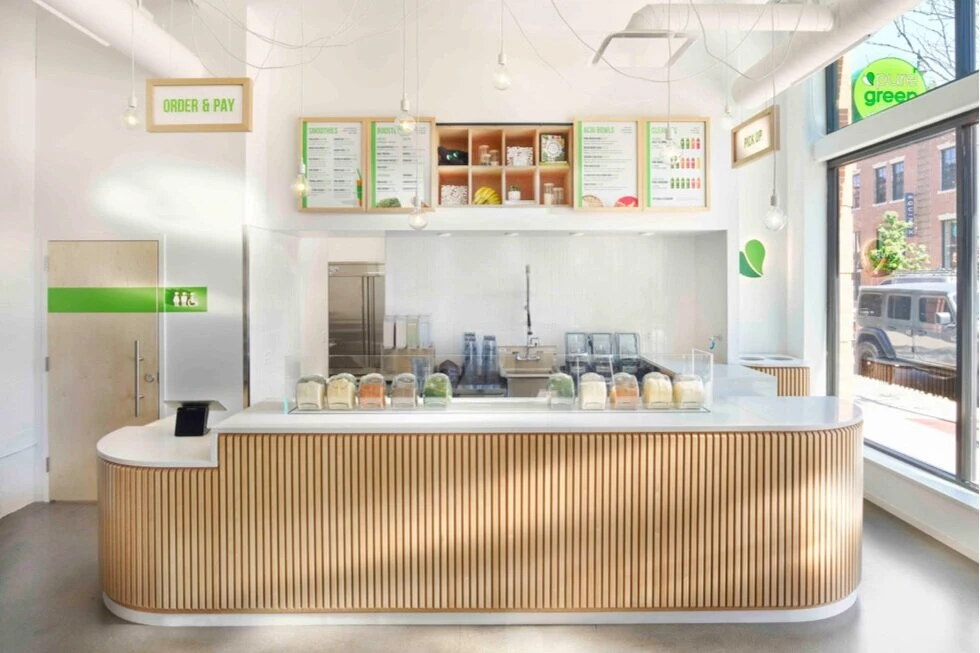

CONS OF INVESTING IN A JUICE BAR FRANCHISE
1. Initial Start Up Costs
We said we’d talk about this, and we will. If you want to start a juice bar, you are going to need at least a little bit of money. As suggested earlier, including the standard $30,000 initiation fee, a juice bar franchise will require you to have more than $100,000 of capital.
For some people, that figure is simply unacceptable, which is why “costs” is the most obvious drawback. However, it is important to remember that this doesn’t necessarily mean you need to have $100,000 sitting in your bank account. As your franchisor will quickly make clear, there are many financing options available.
2. Franchise Rules and Regulations
When creating a franchise—as opposed to starting your own brand from scratch—you will need to adhere to at least a few basic rules. Many of these rules are related to branding and marketing. For example, whether you are opening a Pure Green Franchise or any other juice bar franchise, you’ll be expected to use the names, logos, and colors that are connected to the company.
For most franchise owners, this isn’t really that big of a deal. But there are also some that want to create branding and operational elements of their own. If you are considering opening a juice bar franchise, it will be up to you to determine whether creative freedom is worth giving up the benefits of a franchise.
3. Strong Competition
Is Investing in a Juice Bar Franchise Right for Me?
Whether opening a juice bar franchise is “right” for you will depend on a variety of different factors, including your personal financial well-being, your goals as a business owner, your operational preferences, and more. But in the end, there are a few things that should be clear to all business owners: juice bars have a tremendous amount of economic potential, and the franchise is likely the best way to maximize your profit potential.
